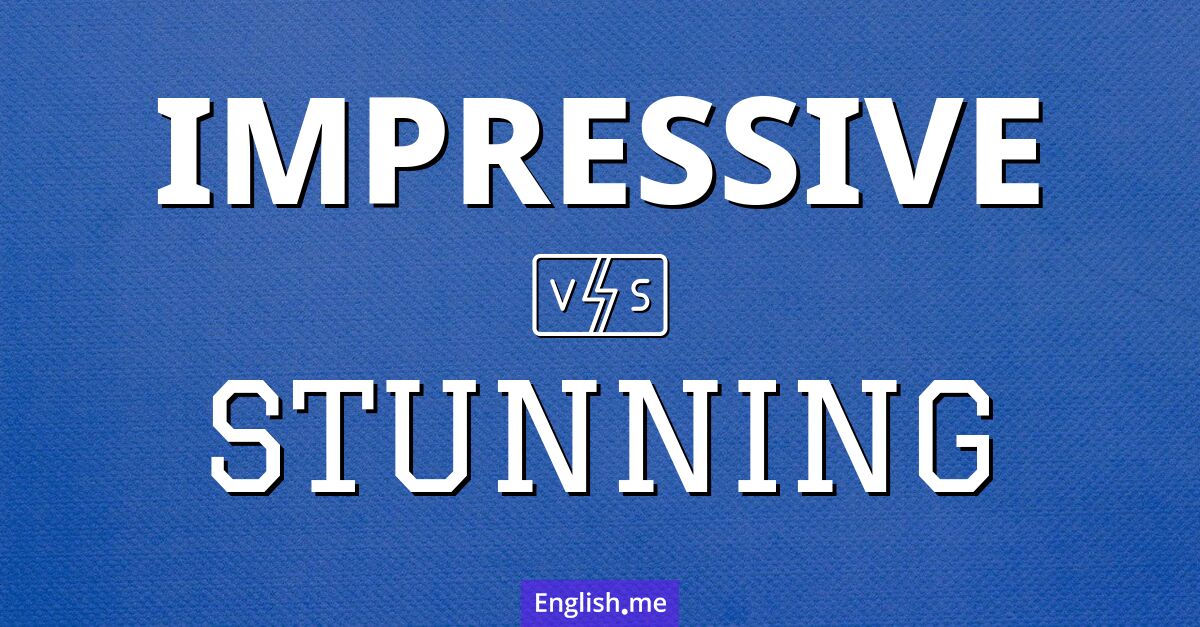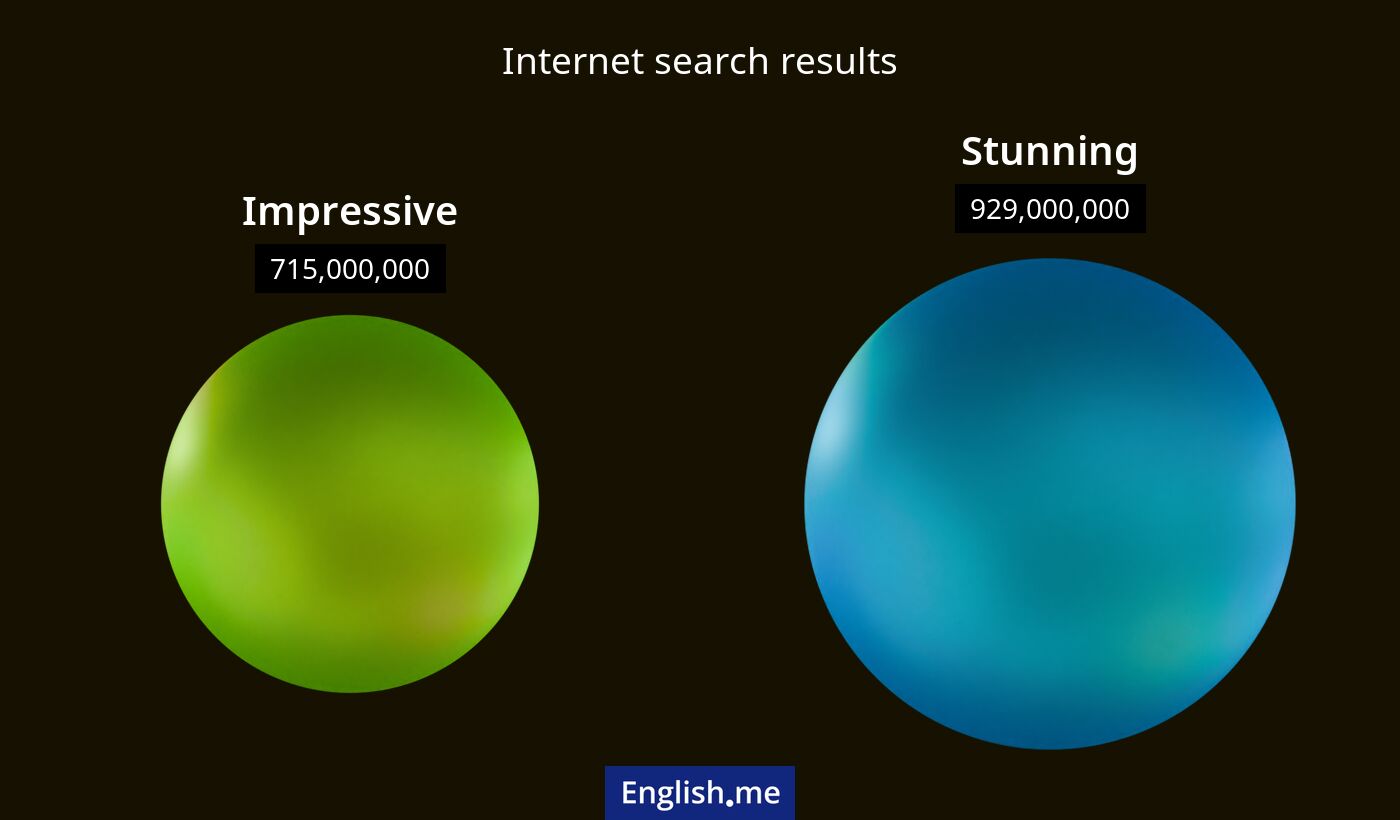Beyond words: comparing "impressive" and "stunning"
Reviewed and edited by  Anwar Kareem 26/10/2024, 07:55
Anwar Kareem 26/10/2024, 07:55
English.me team member

 What is similar?
What is similar?
Both "impressive" and "stunning" are adjectives used to describe something that evokes a strong reaction or admiration. They convey a positive response to an experience, object, or performance.
 What is different?
What is different?
The word "impressive" is generally used to describe something that evokes admiration or respect, often due to its size, skill, or quality. "Stunning" typically describes something so beautiful or astonishing that it surprises or overwhelms the senses.
 Which one is more common?
Which one is more common?

 Examples of usage
Examples of usage
Impressive- The architect's design was impressive in both scale and complexity.
- Their speech was impressive and left the audience feeling inspired.
- The athlete's record-breaking performance was truly impressive.
- The view from the mountaintop was absolutely stunning.
- She was met with stunning news that momentarily left her speechless.
- The garden, in full bloom, offered a stunning display of colors.

 English
English español
español française
française italiano
italiano deutsche
deutsche 日本語
日本語 polski
polski česky
česky svenska
svenska Türkçe
Türkçe Nederlands
Nederlands